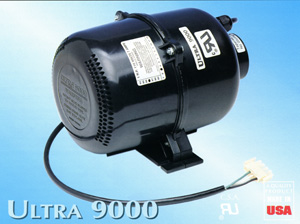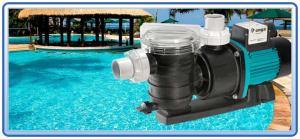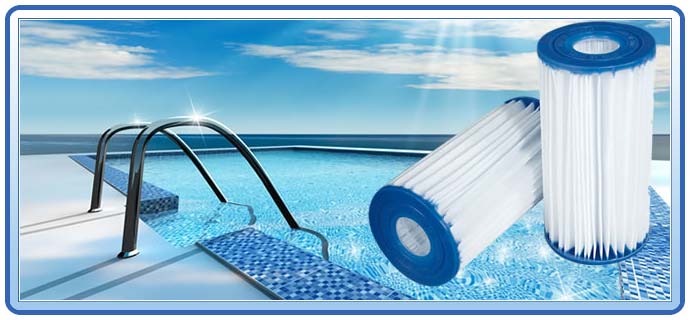 Every swimming pool needs a swimming pool pump & filter for cleaning or filtering the water. When selecting a pump and filter, they must be correctly sized to the volume of water that is in the pool.
Every swimming pool needs a swimming pool pump & filter for cleaning or filtering the water. When selecting a pump and filter, they must be correctly sized to the volume of water that is in the pool.
The swimming pool pump & filter are responsible for circulating the pool’s chemicals and filtering out debris from the water to keep it sparkling blue. The pump should be sized to the filter, so the pump can pump the number of gallons of water in 6-8 hours that will cause one turnover of the pools water. A larger than needed filter will allow you to clean less often. Never use a smaller filter than what the pump is designed for as it will cause less efficient filtering and higher operating pressures of the filter.
Swimming pool pumps are available in three types, single speed, dual speed and variable speed. Single speed pumps come in a variety of sizes from 0.5 HP to very large 5 HP and larger pumps. Most home pools typically will use a 1 HP pump, larger for higher volume pools and smaller for lower volume pools. Dual speed pumps allow you to operate the pump at a lower speed to allow for chlorination of the pool when the use of the higher speed is not necessary to operate a pool cleaner. Variable speed pumps adjust the speed automatically based on how dirty the filter is. Single speed pumps are the least expensive to buy. Variable speed pumps are the most expensive.
Filters can be categorized as follows:
Cost to Buy: Cartridge, Sand and DE (most expensive)
Cost to operate: Sand, DE, Cartridge (most expensive)
Ease of use: Sand (easiest to use), Cartridge, DE
Best Filtration: Sand, Cartridge, DE (Finest filtration)
In my opinion the most important is the cost to operate and ease of use.
There are many online vendors that offer swimming pool pumps and filters within a reasonable price range. At mypool.com we offer excellent customer service, fast shipping, a wide variety of pool pumps and filers at reasonable prices.For more information about My pool to purchase Swimming pool heaters and supplies, please visit: mypool.com


